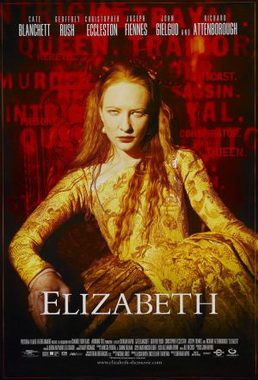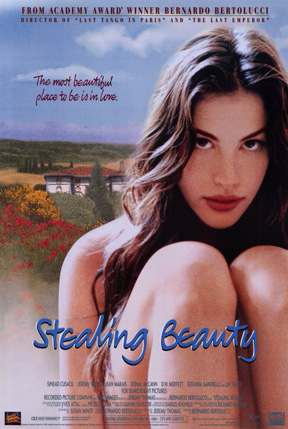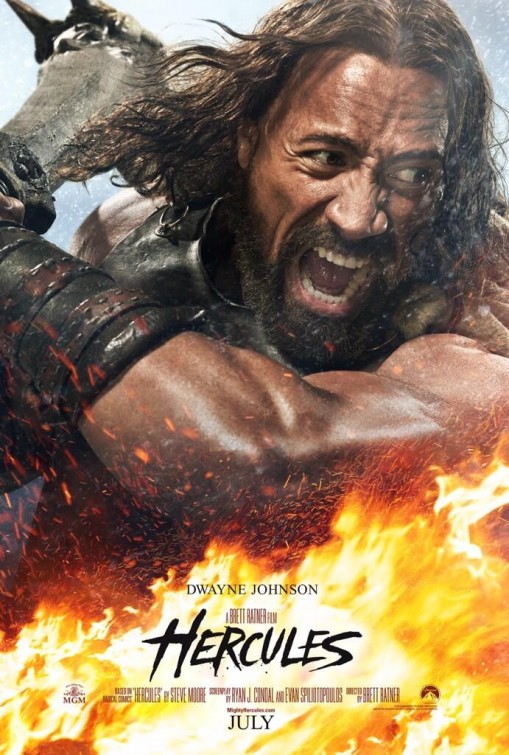
It’s been a weird week at the movies for yours truly, my friends : first off, I went to the theater three times this week, which almost never happens anymore (what do you think I am, rich?), and secondly, while I enjoyed The Purge : Anarchy about as much as I expected to (which is to say quite a bit), the other two flicks I saw both took me by surprise for different reasons : I was far less impressed with Richard Linklater’s much-celebrated Boyhood than I expected to be, and I ended up liking Brett Ratner’s new take on Hercules waaaaaayyyy more than I figured I was going to.
Though not because of anything Ratner himself did. But we’ll get to all that in a minute.
Full disclosure : I only went to see Hercules because my dad wanted to check it out. He’s a sucker for this kind of thing (he absolutely loves the old Kevin Sorbo TV series), and my mom wouldn’t touch a movie like this with a ten-foot pole, so when he mentioned he was hoping to check it out, I said I’d go with him. We’ve all gotta spend time with our parents while they’re still with us, right? But it’s fair to say, given Ratner’s involvement with this thing, that I wasn’t expecting much.
And ya know? He doesn’t deliver much — the direction here isn’t actively bad by any means, but it’s pretty straightforward stuff : the numerous “big battle” scenes are handled competently, and the actors by and large turn in decent enough performances, but there’s no real unique authorial stamp on any of the proceedings, and frankly, a lot of the CGI is several rungs below what we’ve come to expect from these mega-budget summer popcorn flicks. All in all, technically speaking, it’s a fairly mixed bag.
Why, then, did I find myself pleasantly surprised by this latest (and third so far this year alone, by my count) take on Greek mythology’s most famous demi-god warrior? Simply put, the script offers a neat revisionist take on the hero, and is smart, intelligent, engaging, and surprising — it’s entirely unlike any iteration of the character we’ve seen before, and for my part, I really dug it.
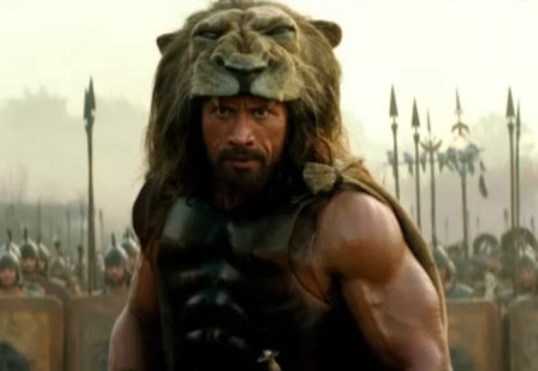
Before I give all of the (or even any) credit to screenwriters Ryan Condal and Evan Spiliotopoulos for this film’s suceess, though, let me state for the record that Dwayne “The Rock” Johnson is perfectly likable in the title role, and while he may be a pretty conservative casting choice, that’s okay — he’s more or less pitch-perfect and his supporting actors (including Ian McShane, Rufus Sewell, and Ingrid Bolso Berdal as members of his mostly-merry mercenary band and John Hurt and Joseph Fiennes as the film’s principal villains) do their jobs well, too. So kudos to everyone for putting in an honest day’s labor all the way through here. But let’s get back to the novel new twist on the whole legend/premise here, shall we?
This Hercules is radically different to his predecessors not just because he can actually talk (something Arnold Schwarzenegger, Lou Ferrigno, and Steve Reeves really weren’t so great at when they tackled the role), but because he a) may not actually be the son of Zeus; b) is leader of a group of freelance soldiers-for-hire; and c) was driven from his home after having name dragged through the mud for supposedly killing his own family. Told’ja this was a new set-up, didn’t I?
There are also some intriguing moral complexities woven into the story that I won’t give away here — hey, I want to keep things at least nominally “spoiler-free” when and where I can — and the interpersonal relationships between Hercules and his fellow travelers — as well as those they lend/sell their services to along the way — have considerably more depth than any reasonable human being would expect from action movie fare such as this. I was both mightily impressed by this intriguing series of twists, and frankly taken more than just a little aback by them. It wasn’t until the end credits rolled that my “aha!” moment came and I realized I shouldn’t have been shocked at all, if only I’d done a little bit of homework beforehand.
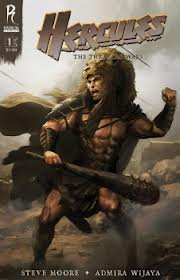
As it turns out, Ratner’s film is an adaptation of a comics series (well, two comics series, actually) penned by the late, great Steve Moore. I don’t know much about the publisher of these books, an outfit called Radical Comics , but I do know plenty about Steve Moore, and you should, too. Moore, who passed away from natural causes at his home earlier this year, is probably best known to comics fans as Alan Moore’s best friend (no relation despite sharing the same last name), and was a genuinely remarkable talent and, by all accounts, a genuinely remarkable human being. His comics work was sporadic, but he was at the forefront of the “British Invasion” of the early 1980s with works such as the criminally-underappreciated Laser Eraser And Pressbutton, and outside the field of comics he was a regular contributor to Fortean Times magazine as well as being a part-time musician and experienced occultist. He lived his entire life in the house he was born in and apparently carried on a decades-long erotic/romantic relationship with a moon goddess entity known as Cybele. All in all, then, a thoroughly interesting guy, as well as being an insanely talented creative force.
I wish I’d known about his Herclues comics when they came out — I don’t know if they just didn’t get very good US distribution or what (the cover of the first issue is pictured above), but I honestly don’t recall ever seeing a single copy of any of them out on the shelves at my local comic shop, and I’m there every week. A quick search on Amazon shows that two trade paperback collections of the series are available, but one is out of print and commanding rather high prices. Oh well, think I’ll probably order it up anyway.
Here’s the kicker, though — as much as I enjoyed this flick, now I feel kinda bad for having shelled out any cash on it. Why, you ask? Because Steve Moore’s surviving family isn’t getting a dime off it. A quick Google search shows that Alan Moore has been absolutely up in arms about how his recently-deceased friend (and, in many respects, mentor) has been screwed over by the producers of the film, and he’s called for a boycott of it. I know, I know — Moore’s got a reputation for being a curmudgeon and for telling people not to buy, well, anything, but the damn thing is, more often than not, he’s absolutely right. The cinematic adaptation of The League Of Extraordinary Gentlemen was, in fact, every bit as horrendous as he claimed it was going to be, the Before Watchmen comics were by and large positively awful, and the V For Vendetta movie was an atrocious dumbing-down of his far superior original work. Yeah, he was none too pleased about the Watchmen film, either, but I won’t use that as an example of him being correct because by and large I kinda liked that one. Still, his criticisms are spot-on more often than not.
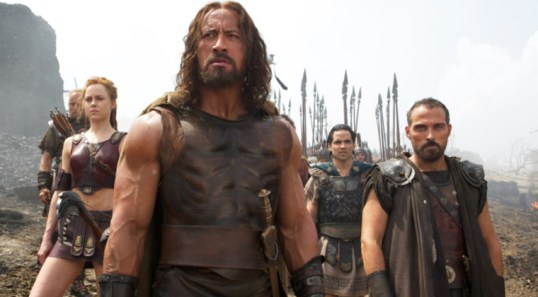
So here’s what I’m thinking knowing what I know now : Ratner’s Hercules is, in fact, a far superior effort than I felt sure it would be going in, yes — but it’s probably nowhere near as good as the comics it was based on, and the fact that Steve Moore got swindled — even (and especially) after death — from seeing so much as a penny from a big-budget adaptation of his work is positively unconscionable. Again, I haven’t read any of these comics yet, but it’s a safe bet that anything good that survived the translation from the printed page to the screen is only there because Steve Moore put it there in the first place. In short, he’s the main reason this movie is actually pretty damn good, and that makes perfect sense when you think about it because you know full well Ratner isn’t capable of delivering the goods on his own. We all remember Red Dragon, don’t we?
Okay, fair enough — I’ve tried my best to put that out of my mind, too.
So in the end I guess I’m left with something of an ethical conundrum here — I liked Herclues. I really did. But mostly for its unique and original story. And now that I know the story behind that story (whoops, I’m being repetitious here, sorry), I sorta wish I’d never seen the thing. Okay, on that note. I’m off to Amazon to order up these books.

